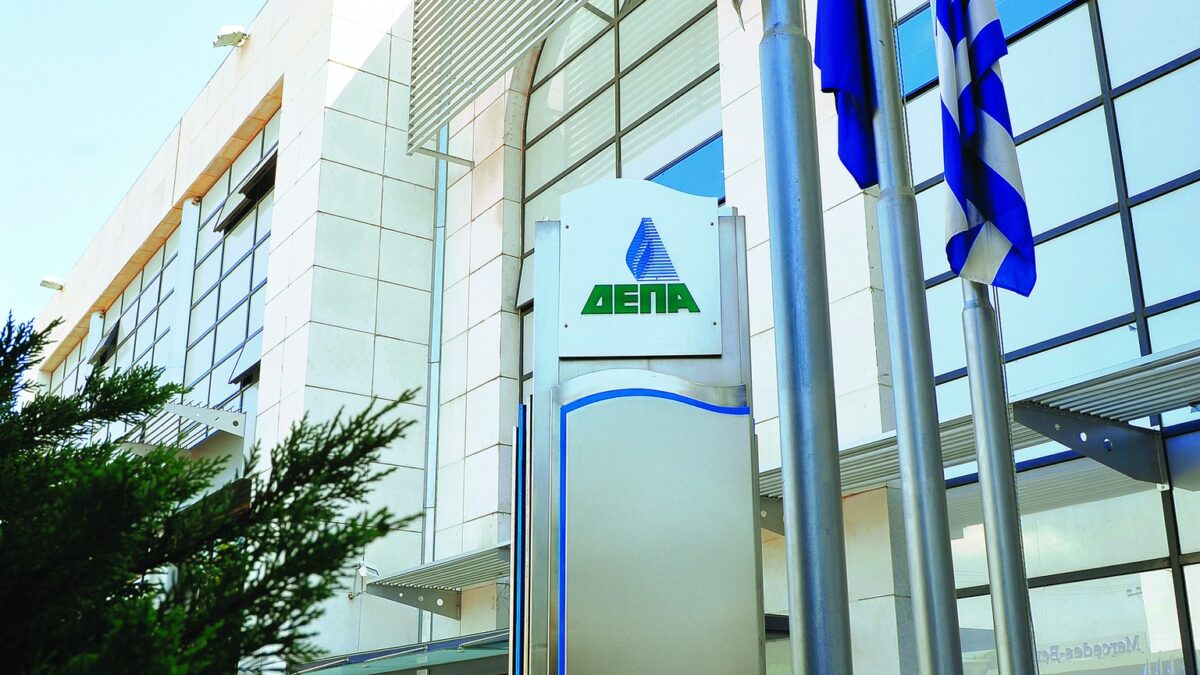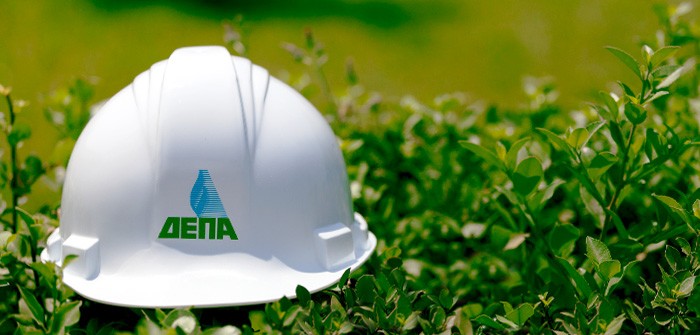DEPA at a glance
Natural gas is the fastest growing form of primary energy world-wide given its advantages compared to other forms of energy and its decisive contribution to the protection of the three elements necessary for Sustainable Development, i.e. “Environment, Society, Economy”, because:
- It allows greater energy efficiency compared to other fuels in all production segments, primarily power generation using combined cycle technology.
- It is more environmentally friendly compared to all other fuels per generated energy (by 38% compared to coal, by 28% compared to crude oil and by 24% compared to diesel oil). Those percentages are in reality higher taken into account the greater efficiency rate of natural gas against the corresponding fuels.
- It provides greater flexibility and is easy to use and handle compared to all other fuels in all residential, commercial or industrial applications.
The combination of all those advantages establishes natural gas as:
- First class fuel for power generation to the extent of creating a close interrelationship between the two markets of vital importance, electricity and natural gas.
- Indispensable back-up fuel – and not only – for the solid development of renewable energy sources (RES).
- Essential element for the development of new important applications, such as gas-powered vehicles, and of innovative forms of energy for future commercial production, such as hydrogen and liquid fuels.
- Basic tool for the promotion of the European 20-20-20 target and the European Energy Policy in general.
Natural gas is the dominant energy choice of the European Union; it is considered the fuel of the 21st century and, at the same time, the bridge for the transition from conventional to renewable energy forms.
The implementation of the big energy project to introduce natural gas in the Greek energy balance was set in motion with the establishment of the Public Gas Corporation (DEPA), in 1988, as the vehicle for the development of the necessary infrastructure and all the other aspects of the natural gas industry.
DEPA implemented a significant – for Greek standards – project of basic infrastructure, with a book value over 1.5 billion euro, allowing the transport of natural gas from Thrace to Attica and to all big consumption centers on the Greek mainland.A high-pressure transmission network covering more than 1000 km and a medium-pressure distribution network covering more than 5000 km was constructed in various areas as well as an extensive low-pressure network in at least six greater urban areas.
A liquefied natural gas (LNG) terminal, connected via subsea pipelines with the central natural gas transmission system, and the 295km-long natural gas Interconnector between Turkey (Karaҫabey) and Greece (Komotini) were completed.Collaboration was initiated with big international companies which undertook the expansion of the distribution networks and the penetration of natural gas in areas with an annual consumption up to 10 million cubic meters.
An internal natural gas market was developed covering all sectors of economic activity with the potential for further penetration.The increasing role of natural gas in the international energy scene combined with the country’s geographical position creates perspectives of broader interconnections of the existing infrastructure with the networks of neighboring countries. DEPA is promoting this geostrategic advantage by participating actively in the implementation of corresponding projects.
The Greece-Turkey Interconnector has been operating since 2007 transporting Caspian/ Azerbaijani natural gas via Turkey to Greece. The extension of this pipeline is planned to reach Italy, while at the same time the connection between Greece and Turkey forms the basis for the under development 160km-long branch of Greece – Bulgaria Interconnector Komotini-Stara Zagora with a prospect of further expansion.
DEPA with its wide experience has a strong presence in the broader energy scene. It has been active, since 2007, as a group of legally unbundled companies in the full spectrum of the natural gas industry, successfully responding to the challenges of the free market, in line with the provisions of the EU legislation.
The European Union supports and strengthens through co-financing schemes all DEPA projects, especially those whose positive contribution extends beyond the borders of Greek territory and extends first in SE Europe and consequently into the broader European space. The projects for the Greece-Turkey, Greece-Italy, Greece-Bulgaria interconnections, the project for a new LNG Terminal in northern Greece are just an example with multi-faceted significance for the implementation of the European Policy since, inter alia, they contribute to the diversification of supply sources, the consolidation of competition and supply security conditions, the development of in-between emerging markets and the strengthening of creating regional natural gas markets.
With DEPA as a basic leverage tool the investment horizon is broadened and the business opportunities are multiplied, in and out of the Country, covering the whole network of corresponding activities. Essential challenge for today’s European natural gas industry is the creation of those conditions that will allow over time the security of supply of the market, under competitive terms.We are certain that the Group of Companies of DEPA steadily contributes to the implementation of said targets.

DEPA is the company that introduced natural gas to Greece implementing a big energy investment.
DEPA with its long presence in the Greek market is a modern and competitive group of companies with a dynamic presence in the energy sector and substantial contribution to the sustainable development of the Greek economy, the protection of the environment and the improvement of the quality of life of the local communities.
With the continuous expansion of the natural gas pipelines, DEPA Group brought natural gas to more and more regions of the country.
Committed to long-term pipeline natural gas and LNG supply contracts, DEPA supports Greece’s energy security while developing significant initiatives so that Greece can play an essential role as a natural gas transit hub to Europe.

Our vision is to be a strong regional energy company offering quality and innovative services contributing, thus, to sustainability and society’s welfare.
DEPA’S strategic goals are:
- To grow from a midstream gas company to a vertically integrated group of companies in the energy sector,
- To invest in energy projects that make a positive contribution to sustainable development and are complied with the international goal of decarbonizing the energy sector,
- To maintain its competitiveness in its core business,
- To expand its operations abroad and initiate new activities,
- To take advantage of the geographical location and the energy potential of Greece to set up and exploit new development opportunities domestically and regionally.
- To increase the natural gas penetration in the Greek energy market,
- To create a modern and efficient organization that will respond and successfully adapt to the changing needs of the market and the society and will exploit the future development opportunities, continuously improving its services, with respect to the people, the society, and the environment.

DEPA focuses on maximizing its value, through optimizing the performance of its existing activities, as well as developing new / expanding existing activities in the following areas:
- Strengthening its commercial portfolio in natural gas and electricity sectors and the company's foreign commercial operations.
- Supporting the retail operations of its subsidiary company "Natural gas - Hellenic Energy Company" (EPA Attikis).
- Expanding to power generation, mainly from RES & CCGTs.
- Participating in infrastructure projects supporting commercial operations domestically and regionally (FSRU).
- Developing new markets using new logistics models (CNG/SSLNG).
- Expanding activities in sustainable development domains, initially through developing the existing participation in the electricity market coupled with pilot projects to produce renewable gas fuels.


